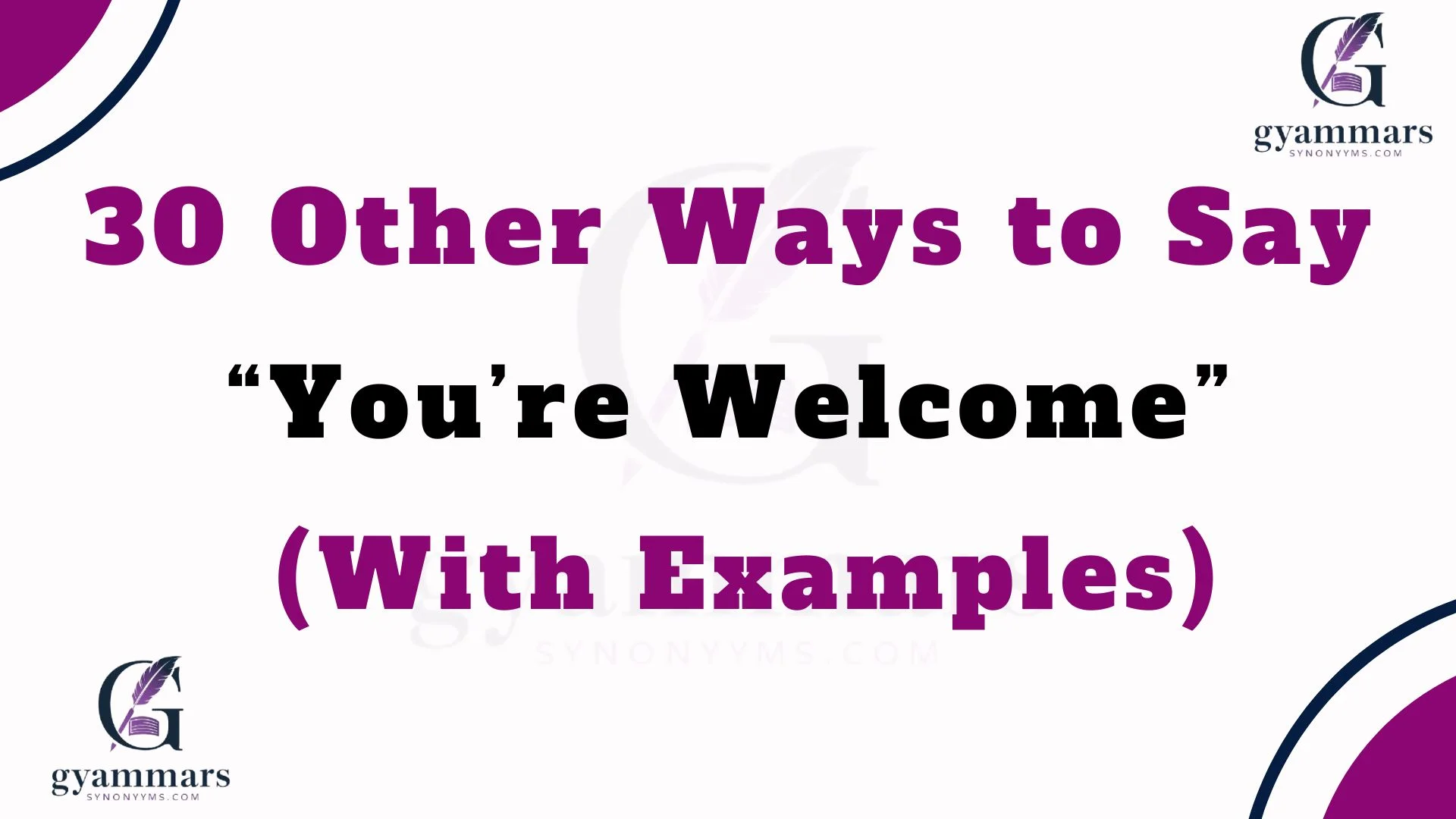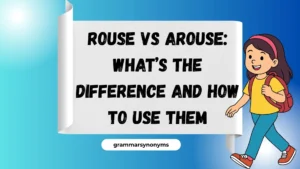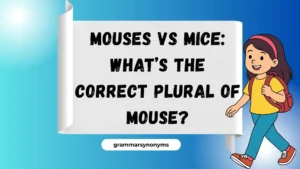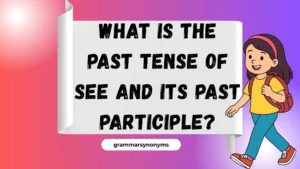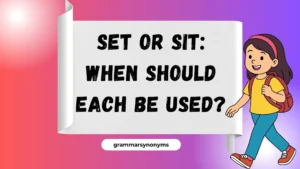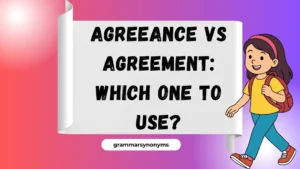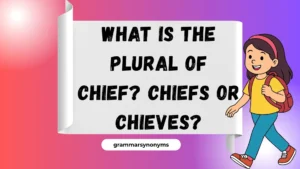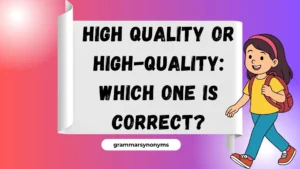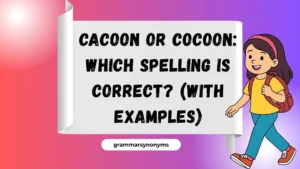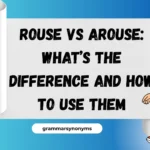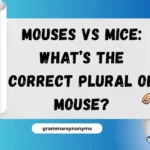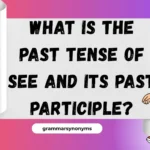Finding the right words to respond to “thank you” can make your interactions feel more authentic, warm, and personal. While “you’re welcome” is classic and polite, sometimes you might want to add more emotion, friendliness, or professionalism depending on the situation.
In this guide, we’ll explore 30 other ways to say “you’re welcome”, so you can sound more natural, genuine, and expressive — whether you’re replying to a friend, colleague, or stranger.
What Does “You’re Welcome” Mean?
The phrase “you’re welcome” is a polite response to someone expressing gratitude. It literally means that their thanks are accepted, and you’re happy to have helped.
It conveys kindness, humility, and acknowledgment of the other person’s appreciation. Essentially, it says: “It was no trouble — I’m glad I could do that for you.”
Is It Professional/Polite to Say “You’re Welcome”?
Yes — saying “you’re welcome” is both professional and polite. It’s universally accepted in workplaces, customer service, and formal conversations.
However, using the same phrase repeatedly can sometimes sound robotic or rehearsed. That’s why varying your responses can make your tone sound friendlier, more thoughtful, and emotionally intelligent.
Pros or Cons of Saying “You’re Welcome”
Pros:
- Universally polite and respectful
- Works in every situation
- Shows acknowledgment of gratitude
Cons:
- Can sound overly formal or stiff
- May lack emotional warmth
- Repetition makes it feel impersonal
That’s why it helps to mix in fresh alternatives that match your mood and setting.
Synonyms For “You’re Welcome”
- No Problem
- My Pleasure
- Anytime
- Don’t Mention It
- Glad to Help
- Of Course
- It Was Nothing
- Sure Thing
- Happy to Help
- You Got It
- No Worries
- Not at All
- It’s All Good
- I’m Glad You Liked It
- You’re Very Welcome
- Always Here for You
- Don’t Sweat It
- I’ve Got You Covered
- That’s Okay
- I’m Honored
- It Was My Duty
- You Deserve It
- I’m Happy You’re Happy
- Absolutely
- No Big Deal
- Anything for You
- You Bet
- That’s What Friends Are For
- I’m Always Glad to Help
- Consider It Done
1. No Problem
Definition: A casual, friendly response implying the favor wasn’t an issue.
Explanation: “No problem” is commonly used in relaxed conversations. It downplays any inconvenience and makes you seem approachable.
Example: Friend: “Thanks for helping me move!” You: “No problem! Glad I could help.”
Best Use: Informal settings with friends or coworkers.
Tone: Friendly, laid-back.
Additional Notes: Avoid using it in formal business emails — it may sound too casual.
2. My Pleasure
Definition: A polite and gracious alternative to “you’re welcome.”
Explanation: “My pleasure” communicates genuine enjoyment in helping someone. It’s perfect when you want to sound professional yet warm.
Example: Client: “Thank you for your quick response.” You: “My pleasure. I’m happy to assist anytime.”
Best Use: Customer service or professional communication.
Tone: Courteous, refined.
Additional Notes: Excellent for written messages and formal tone.
3. Anytime
Definition: A simple way to say you’re always available to help.
Explanation: “Anytime” signals openness and a willingness to help again in the future.
Example: Neighbor: “Thanks for watching my dog!” You: “Anytime! She’s adorable.”
Best Use: Friendly, informal situations.
Tone: Warm, approachable.
Additional Notes: Great for friends, family, and casual texts.
4. Don’t Mention It
Definition: Suggests that the help wasn’t a big deal and no thanks are necessary.
Explanation: Often used to downplay modestly the act of kindness.
Example: Friend: “Thanks for covering for me.” You: “Don’t mention it! Happy to help.”
Best Use: Informal, everyday conversations.
Tone: Humble, casual.
Additional Notes: Avoid in very formal settings; can seem dismissive if tone is off.
5. Glad to Help
Definition: Shows that helping made you happy.
Explanation: A warm, heartfelt response expressing genuine satisfaction in assisting.
Example: Coworker: “Thanks for fixing the report.” You: “Glad to help — teamwork makes it easier!”
Best Use: Workplace or friendly chats.
Tone: Positive, cooperative.
Additional Notes: Perfect for teamwork and collaboration contexts.
6. Of Course
Definition: Implies that your help was natural and expected.
Explanation: Conveys a sense of loyalty or closeness to the other person.
Example: Friend: “Thanks for listening.” You: “Of course, I’m always here for you.”
Best Use: With people you have a bond or trust with.
Tone: Sincere, supportive.
Additional Notes: Best for personal, heartfelt conversations.
7. It Was Nothing
Definition: Downplays your effort in a kind, modest way.
Explanation: You use it when you want to show humility or that you were glad to assist.
Example: Colleague: “Thanks for helping with the project.” You: “It was nothing — happy to see it finished.”
Best Use: Formal and informal situations.
Tone: Modest, kind.
Additional Notes: Works well in professional or polite contexts.
8. Sure Thing
Definition: A friendly, confident response that implies eagerness to help.
Explanation: Common in casual speech, it conveys enthusiasm and readiness.
Example: Friend: “Thanks for dropping me off.” You: “Sure thing! Anytime.”
Best Use: Casual and everyday use.
Tone: Cheerful, friendly.
Additional Notes: Avoid in very formal business communication.
9. Happy to Help
Definition: Expresses genuine joy in being of service.
Explanation: Warm, sincere, and ideal when you want to sound kind and professional.
Example: Customer: “Thanks for resolving my issue.” You: “Happy to help! Have a great day.”
Best Use: Customer service, professional settings.
Tone: Friendly, warm.
Additional Notes: Excellent for customer-facing communication.
10. You Got It
Definition: A confident, informal way of saying “you’re welcome.”
Explanation: Implies cooperation and understanding — especially in team contexts.
Example: Friend: “Thanks for covering my shift.” You: “You got it, buddy!”
Best Use: Friendly and team-based settings.
Tone: Supportive, energetic.
Additional Notes: Avoid in overly formal interactions.
11. No Worries
Definition: A relaxed and friendly way of saying “you’re welcome.”
Explanation: This phrase reassures the other person that their request wasn’t a burden. It’s especially common in Australian, British, and casual American English.
Example: Friend: “Thanks for picking me up!” You: “No worries! I was heading this way anyway.”
Best Use: Informal settings or friendly interactions.
Tone: Easygoing, approachable.
Additional Notes: Avoid in overly formal contexts — it may sound too casual.
12. Not at All
Definition: A polite and traditional expression that downplays gratitude.
Explanation: This response emphasizes humility and conveys that helping required little effort.
Example: Colleague: “Thank you for helping me prepare the presentation.” You: “Not at all — it was a team effort.”
Best Use: Professional and formal settings.
Tone: Respectful, courteous.
Additional Notes: Ideal for business conversations, interviews, or formal emails.
13. It’s All Good
Definition: A casual phrase meaning “it’s fine” or “no problem.”
Explanation: It conveys that everything’s okay and no thanks are necessary. It adds a chill, friendly vibe to your tone.
Example: Friend: “Sorry for making you wait, and thanks for understanding.” You: “It’s all good! Don’t worry about it.”
Best Use: With friends or peers in informal situations.
Tone: Relaxed, informal.
Additional Notes: Avoid in professional settings — can sound too slangy.
14. I’m Glad You Liked It
Definition: A personal, expressive response to appreciation.
Explanation: This response shows genuine happiness that your effort was valued.
Example: Guest: “The dinner was amazing!” You: “I’m glad you liked it — I tried a new recipe.”
Best Use: Personal interactions and friendly environments.
Tone: Warm, appreciative.
Additional Notes: Excellent for compliments or feedback.
15. You’re Very Welcome
Definition: A slightly more formal and enthusiastic variation of “you’re welcome.”
Explanation: It adds extra politeness and warmth, suitable when you want to emphasize sincerity.
Example: Client: “Thanks for your quick reply.” You: “You’re very welcome! Happy to help.”
Best Use: Formal and professional communication.
Tone: Polite, genuine.
Additional Notes: Ideal for customer service or client-facing roles.
16. Always Here for You
Definition: Expresses loyalty and emotional support.
Explanation: This phrase is comforting — showing your willingness to be there beyond a single favor.
Example: Friend: “Thanks for being there during tough times.” You: “Always here for you — you can count on me.”
Best Use: Emotional or personal contexts.
Tone: Compassionate, reassuring.
Additional Notes: Avoid in professional settings; it’s too personal.
17. Don’t Sweat It
Definition: A modern, casual way to say “no problem.”
Explanation: Implies that the favor or task was easy and not worth worrying about.
Example: Friend: “Thanks for covering my shift!” You: “Don’t sweat it — happy to help out.”
Best Use: With friends, peers, or close coworkers.
Tone: Cool, casual.
Additional Notes: Avoid using it with authority figures or clients.
18. I’ve Got You Covered
Definition: Indicates reliability and readiness to help.
Explanation: It’s a confident, supportive way to show that you’ve handled something for someone.
Example: Coworker: “Thanks for taking care of the report.” You: “No problem — I’ve got you covered.”
Best Use: Team settings or casual work environments.
Tone: Supportive, proactive.
Additional Notes: Great for building teamwork and trust.
Read This: 30 Other Ways to Say “All the Best” (With Examples)
19. That’s Okay
Definition: A soft, accepting response that shows understanding.
Explanation: Often used when someone apologizes or thanks you for something small.
Example: Neighbor: “Sorry for the noise, and thanks for understanding.” You: “That’s okay — it happens!”
Best Use: Friendly and everyday conversations.
Tone: Kind, empathetic.
Additional Notes: Avoid when responding to major thanks — may sound dismissive.
20. I’m Honored
Definition: Expresses gratitude for being appreciated or trusted.
Explanation: You use it when someone thanks you for something meaningful or respectful.
Example: Boss: “Thank you for leading this project.” You: “I’m honored to have been part of it.”
Best Use: Formal or heartfelt situations.
Tone: Respectful, sincere.
Additional Notes: Perfect for awards, compliments, or recognition moments.
21. It Was My Duty
Definition: A professional, serious way to acknowledge thanks.
Explanation: Suggests that helping was part of your responsibility — especially in work or service contexts.
Example: Supervisor: “Thanks for completing the report early.” You: “It was my duty — I’m happy to contribute.”
Best Use: Workplace or formal communication.
Tone: Responsible, polite.
Additional Notes: Suitable for official conversations or formal writing.
22. You Deserve It
Definition: Highlights that the other person earned your help or kindness.
Explanation: It adds emotional depth — showing you value the person’s worth.
Example: Friend: “Thanks for planning my surprise party!” You: “You deserve it — you’ve been through a lot lately.”
Best Use: Personal or encouraging contexts.
Tone: Warm, supportive.
Additional Notes: Great for moments of appreciation or celebration.
23. I’m Happy You’re Happy
Definition: Expresses joy in seeing someone pleased with your action.
Explanation: This phrase focuses on shared positivity and emotional connection.
Example: Guest: “That meal was wonderful!” You: “I’m happy you’re happy — that makes it all worth it.”
Best Use: Friendly or personal settings.
Tone: Joyful, empathetic.
Additional Notes: Avoid in formal situations; it’s too emotional for business.
24. Absolutely
Definition: A confident and affirmative way to respond to gratitude.
Explanation: Shows certainty, enthusiasm, and willingness to help.
Example: Colleague: “Thanks for joining the meeting last minute.” You: “Absolutely! Always glad to contribute.”
Best Use: Friendly professional environments.
Tone: Energetic, confident.
Additional Notes: Works well in both speech and written responses.
25. No Big Deal
Definition: A casual, easygoing way to minimize the effort involved.
Explanation: Suggests the task wasn’t troublesome and that you were happy to help.
Example: Friend: “Thanks for waiting for me.” You: “No big deal — I had time to spare.”
Best Use: Informal or relaxed situations.
Tone: Friendly, casual.
Additional Notes: Avoid in professional emails — may sound dismissive.
26. Anything for You
Definition: Expresses affection and loyalty.
Explanation: Used when you want to show you care deeply and are always ready to help.
Example: Friend: “Thanks for picking me up at midnight.” You: “Anything for you — you know that.”
Best Use: Personal relationships or close friendships.
Tone: Loving, loyal.
Additional Notes: Avoid in formal or distant relationships.
27. You Bet
Definition: An informal American idiom meaning “certainly” or “no problem.”
Explanation: It’s a short, lively way to say you’re welcome or agree readily.
Example: Friend: “Thanks for grabbing me coffee.” You: “You bet! Anytime.”
Best Use: Informal or friendly chats.
Tone: Energetic, friendly.
Additional Notes: Common in casual speech; avoid in formal writing.
28. That’s What Friends Are For
Definition: Highlights the supportive nature of friendship.
Explanation: It communicates affection, trust, and care in a friendly and heartfelt tone.
Example: Friend: “Thanks for helping me move.” You: “That’s what friends are for!”
Best Use: With close friends or loved ones.
Tone: Warm, sentimental.
Additional Notes: Ideal for personal, emotional moments.
29. I’m Always Glad to Help
Definition: A gentle, kind way to show ongoing willingness to assist.
Explanation: Balances professionalism and friendliness perfectly.
Example: Customer: “Thanks for clarifying that for me.” You: “I’m always glad to help — reach out anytime.”
Best Use: Professional, customer service, or casual communication.
Tone: Warm, professional.
Additional Notes: Excellent closing for polite emails.
30. Consider It Done
Definition: A confident expression of commitment and reliability.
Explanation: Means the task is handled or you’ll take care of it — often used in advance of completing something.
Example: Boss: “Thanks for taking care of this.” You: “Consider it done!”
Best Use: Professional and assertive settings.
Tone: Confident, proactive.
Additional Notes: Great for demonstrating dependability or initiative.
Conclusion
The phrase “you’re welcome” is timeless — but having multiple ways to express gratitude acceptance helps you connect better, sound more natural, and fit every social or professional tone. Whether you want to sound formal, friendly, or deeply caring, these alternatives let your words reflect your personality and warmth.
Next time someone thanks you, choose the phrase that feels authentic to your relationship and situation — it’s a small gesture that leaves a big emotional impact.
FAQs
1. What can I say instead of “you’re welcome” professionally?
Use “my pleasure,” “happy to help,” “not at all,” or “you’re very welcome.” They sound polished and courteous.
2. What is a warm way to say “you’re welcome”?
Try “always here for you,” “glad to help,” or “I’m happy you’re happy.”
3. Can I say “no problem” in a professional email?
It’s better to use “my pleasure” or “happy to help.” “No problem” can feel too casual in formal contexts.
4. How can I respond differently every time?
Vary your tone and choice based on who you’re talking to — for instance, “anytime” with friends and “absolutely” in professional chats.
5. What’s the most genuine way to say “you’re welcome”?
A heartfelt “I’m glad I could help” or “you deserve it” feels the most authentic and sincere.

“Emma Rose at Grammar Synonyms is your go-to expert for everything related to language and expression. Whether you’re refining your grammar, searching for the perfect synonym, or looking for creative ways to improve your writing, Emma Rose provides the tools and inspiration you need. With a wide range of resources designed to elevate your communication, Grammar Synonyms helps you find just the right words to make every sentence shine.
